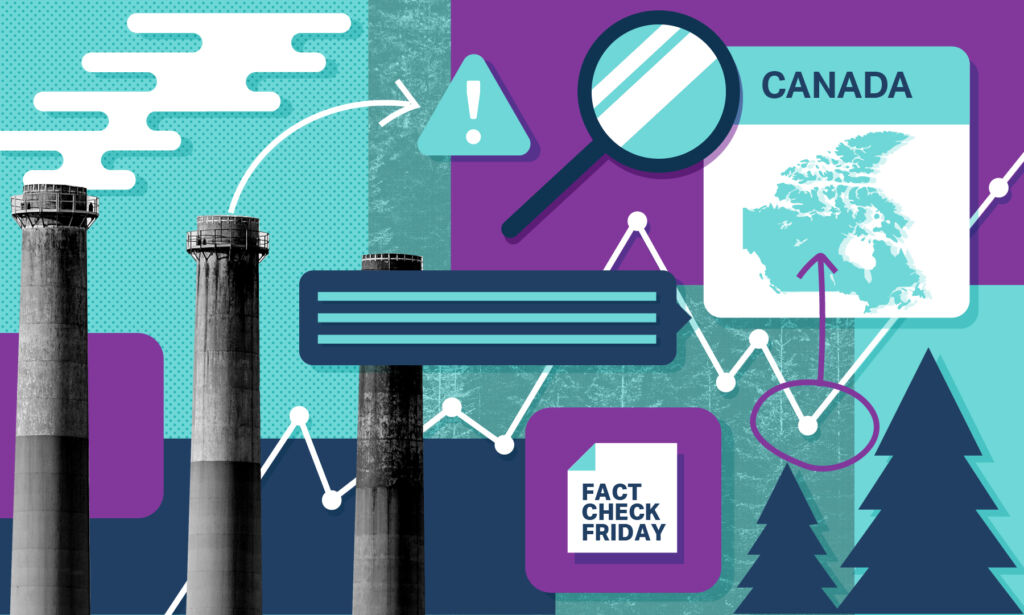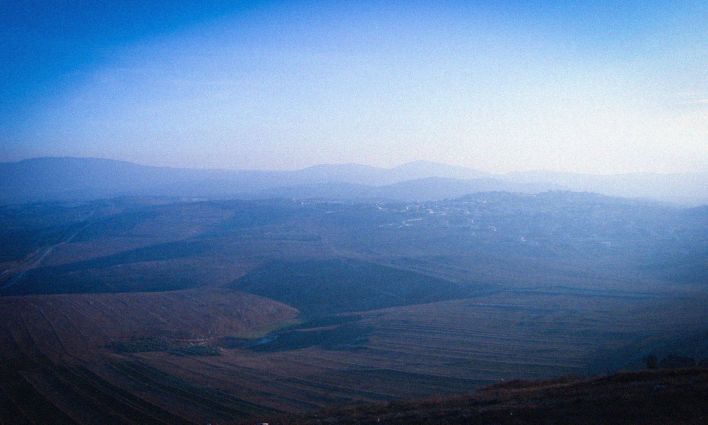The climate emergency is here. In the absence of aggressive action to reduce greenhouse gas emissions, we risk an increasingly unlivable and, by extension, inequitable world.
The good news is we know what to do about it: stop burning fossil fuels. Shifting to cleaner energy—and democratizing our energy system in the process—can help us avoid truly catastrophic changes in the climate. A rapid and just transition away from fossil fuels is both possible and necessary.
Taking action on the climate is also a top priority of Canadian voters in this federal election. Yet, for all their claims to be taking emissions reductions seriously, the federal parties remain beholden to damaging myths that stand in the way of real climate action.
Here are eight of those myths.
Myth #1: Canada is doing its part in the fight against climate change.
Canadian emissions are up 21% since 1990. That’s more than almost every other developed country. Emissions in the UK are down 40% since 1990. Germany is down 30%. Even the U.S. is only up 2%.
Moreover, on a per capita basis, Canadians are world-leading polluters. We have no moral high ground here. But we do have a clear moral duty to act.
Myth #2: Canada has set bold targets for the future.
To do its fair share in meeting global greenhouse gas reduction targets, Canada must lower domestic emissions by roughly 60% below 2005 levels by 2030. In this election, the Conservatives promise a 30% reduction in that time frame. The Liberals promise 40%. The NDP promises 50%. Only the Green Party promises a 60% reduction.
None of this is “leadership” in the global context. A 60% reduction by 2030 is, in many respects, the least we can do.
Myth #3: We can meet our targets by improving emissions efficiency.
Efficiency is important. Reducing emissions can be expensive and there is no reason to spend more than necessary. But at the end of the day, the key indicator for fighting climate change is absolute greenhouse gas emissions.
If we reduce per-barrel emissions by 20%, but produce 30% more barrels of oil, we’re making things worse. The same problem occurs if we reduce per-capita emissions but increase population by a greater share.
Policy must focus on absolute reductions.
Myth #4: (Liquified) natural gas is a clean-burning bridge fuel.
Natural gas is a fossil fuel that is only marginally less polluting than coal. Neither has a place in our zero-carbon future.
To make matters worse, investing in natural gas infrastructure today displaces investment in truly zero-emission energy sources like solar, wind and geothermal. New natural gas investments risk becoming stranded assets, which makes it even more expensive to transition away from gas later on.
Myth #5: We can offset emissions from fossil fuels by planting trees.
The biodiversity crisis looms as large as the climate crisis for our long-term wellbeing. Protecting and restoring nature is essential, including by planting trees and returning traditional lands to Indigenous Peoples.
However, counting on natural carbon sinks to offset fossil fuel emissions is not a climate plan. Once wildfires and infestations are accounted for, our forests often produce more carbon than they sequester. That’s not to mention the enormous moral hazard of letting governments and corporations buy indulgences in place of cutting their own emissions.
Myth #6: Transitioning off fossil fuels will cost too many jobs.
Hundreds of thousands of people depend on the coal, oil and gas industries for their livelihoods. Denying the scale of the fossil fuel industry and the threat posed by climate policies serves no one.
However, far more jobs are being created in the clean economy than are at risk from climate action. Transitioning to a cleaner economy need not cause hardship for fossil fuel workers and communities. In fact, the transition presents enormous economic and employment opportunities.
To minimize the potential harm and maximize the potential benefits, a just transition policy must be ambitious, adequately funded and focused on creating new green jobs.
Myth #7: We must work with the fossil fuel industry to reduce emissions.
No other actor in history has been more obstructive of climate action than the oil and gas lobby. Their insidious and systematic efforts to deny climate science and water down or delay climate policies are well-documented.
Any political compromise with the fossil fuel industry that includes indefinite fossil fuel production is a smokescreen. Governments cannot shy away from a heavy-handed regulatory approach to actively winding down oil and gas extraction, processing and export.
Myth #8: Canadian industry will adapt to a low-carbon economy on its own.
Contrary to the narrative of free market innovation, today’s global leaders in clean technology and manufacturing have been the beneficiaries of aggressive industrial policies backed by big public money in countries such as China, Germany and, increasingly, the United States.
The Canadian government needs to play a hands-on role in scaling up industries like zero-emission vehicle manufacturing or else Canada will fall even further behind.
---
These aren’t the only myths you’ll hear repeated on the campaign trail—other favourites include “our emissions are too small to matter” and “the most important thing individuals can do is reduce their carbon footprint“—but the eight listed here are among the most pernicious and destructive.
In every case, these myths downplay the central role of fossil fuels (and the fossil fuel industry) in the climate crisis, exaggerate the costs of (often inevitable) transitions, and/or absolve governments of the responsibility to take serious action.
The bottom line is that we need to stop producing and consuming fossil fuels as soon as possible. The major parties are moving in the right direction but none reflect the urgency of the climate crisis.
Now more than ever, we need a transformative vision for a zero-carbon future.







